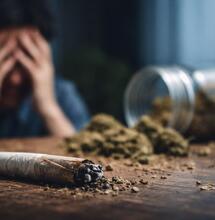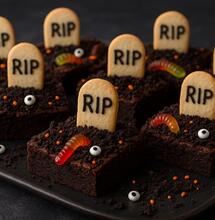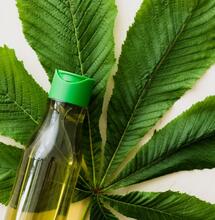Why Weed Gives You the Munchies: Healthy Snacks for Munchies
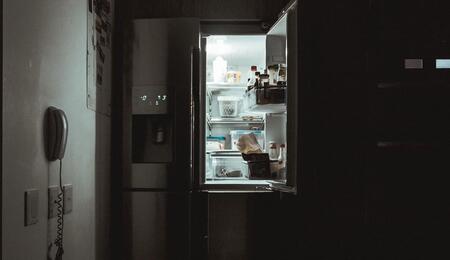
You probably know the feeling: about 30 minutes after smoking weed, something awakens in your belly. Suddenly, the munchies hit, and the fridge starts looking less like an appliance and more like a personal challenge. All of this—triggered by one innocent-looking bud. And the higher the THC in your stash, the more likely you are to find yourself negotiating with leftovers at midnight.
How THC Affects Your Brain: Mood & Hunger
The brain controls everything your body does, and THC—the psychoactive compound in cannabis—has a direct line to it. Once consumed, THC interacts with brain regions that regulate mood and appetite, influencing how you feel and whether you suddenly feel hungry.
The hypothalamus is the brain’s “command center” for appetite. THC effectively “flips a switch” in a group of neurons called pro-opiomelanocortin (POMC) neurons. Usually, these neurons signal that you are full; however, research shows that THC causes them to release a different chemical that promotes hunger instead.
Ghrelin Production: Evidence suggests that THC stimulates the release of ghrelin, often called the “hunger hormone.” This hormone signals the stomach to prepare for food, even if you have recently eaten a full meal.
Various Effects: Depending on the strain and dosage, THC can also spark euphoria, laughter, arousal, relaxation, and, in some cases, even anxiety or lethargy.
Weed Munchies and Enhanced Sensory Perception
In 2014, scientists discovered a surprising link between THC and our sense of smell. A study on mice, published in the journal Nature Neuroscience, found that THC can specifically target the brain’s smell receptors. During the experiments, mice became unusually sensitive to food odors like almonds and bananas—and, thanks to THC, started nibbling on the treats.
The research confirmed that THC enhances odor processing in the brain, directly tying this effect to increased food consumption. It seems THC works closely with the brain’s “olfactory bulb,” a key cannabinoid receptor for smell. When scientists removed this receptor genetically, THC no longer sparked appetite in the mice. In short, THC can make food smell more enticing—which, for humans, often translates to extra-long, love-filled sessions with the fridge.
Harnessing the Appetite-Boosting Power of Cannabis for Therapeutic Insights
Recognizing that weed munchies stimulate appetite offers a useful insight for physicians treating patients with conditions that suppress hunger. For example, depression can dull the sense of smell, and in people with depression—or seasonal affective disorder, a type linked to seasonal changes—the brain region responsible for olfaction is often smaller than normal.
The endocannabinoid system (ECS), which helps regulate sleep, mood, memory, sexual drive, and appetite, is also implicated in depression. THC can influence the ECS, potentially boosting both sleep and appetite. Researchers suggest that targeting the ECS through the olfactory system could help improve conditions like depression. And if smell plays a role in restoring appetite, it raises an intriguing question: could the same pathway be leveraged to support those struggling with obesity?
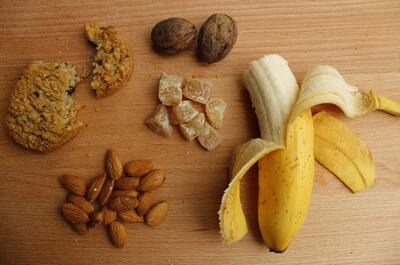
Why Choosing Healthy Snacks Matters
For many, the munchies lead to “binge-eating” highly processed foods high in refined sugars and trans fats. This can lead to blood sugar spikes and subsequent “crashes,” leaving you feeling lethargic. By opting for nutrient-dense alternatives, you can satisfy the biological urge to eat without compromising your metabolic health.
Best Healthy Snacks for Your Next Session
If you find yourself reaching for the pantry, consider some of the following healthy alternatives (I know it’s hard to ditch Starbucks, but):
- Fresh Fruits (The Mango Connection): Mangos are rich in myrcene, a terpene that may facilitate the uptake of cannabinoids. Not only do they satisfy a sweet tooth, but they also provide essential vitamins and hydration.
- Greek Yogurt with Honey: High in protein and probiotics, this provides a “creamy” mouthfeel that many crave while under the influence, without the excessive calories of ice cream.
- Air-Popped Popcorn: If you need “volume” to satisfy the hand-to-mouth habit of snacking, popcorn is a whole grain that provides fiber with minimal caloric density—provided you skip the heavy butter.
- Nuts and Seeds: Almonds or walnuts provide healthy fats and proteins that offer a sense of satiety (fullness) that sugary snacks cannot achieve.
- Dark Chocolate (70%+ Cacao): If you crave chocolate, dark varieties contain polyphenols and less sugar, providing a rich flavor profile that benefits from your heightened senses.
Responsible Consumption and Appetite Management
To manage the munchies effectively, consider also the following:
- Hydration First: The brain often confuses thirst with hunger. Drink a glass of water before reaching for a snack.
- Terpene Profiles: If you are prone to intense hunger, look for strains high in Humulene (an appetite suppressant) or cannabinoids like THCV.
- Mindful Eating: Prepare your healthy snacks before you consume cannabis to avoid impulsive decisions later.
Final words? Eating healthy while high can actually enhance the cannabis experience. It may sharpen your thinking, boost energy if weed usually makes you drowsy, and help you fully enjoy the sensations coursing through your body. In other words, smart snacks can optimize your high. Therefore, it pays to play smart with the munchies!
More from Soft Secrets:
Last updated December 24, 2025





